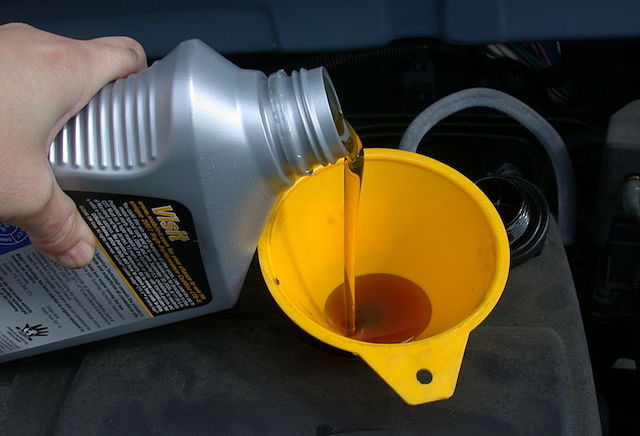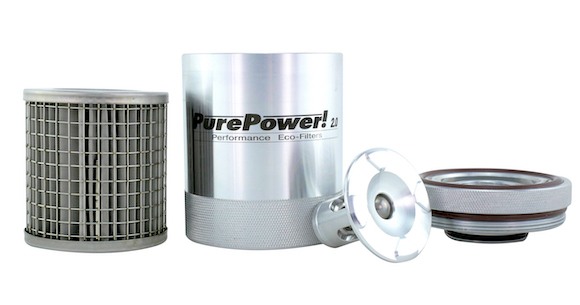How Clean Oil Leads To Better Fuel Economy
Here’s a fun fact: dirty motor oil can reduce your vehicle’s fuel economy.
How, though? One word: viscosity.
What Is Viscosity?
In basic terms, viscosity is a fluid’s resistance to flow. Motor oil with high viscosity is thick and can’t flow that well. Motor oil with low viscosity is thin and flows very well. Water, milk, and blood are fluids with low viscosity. Clean motor oil falls in that category, too. But the dirtier motor oil gets, the higher its viscosity becomes.

The lower the motor oil’s viscosity, the more efficient it is at lubricating the engine.
Photo credit: Dvortygirl via Wikimedia Commons
The viscosity of the oil plays a big part in the decision to change it. Motor oil with high viscosity isn’t very useful. Since it can’t flow through the engine that well, it does a poor job lubricating the parts within the engine.
Sludgy, high viscosity oil can accelerate wear on components within the engine due to inadequate lubrication. Not only that, but it can also bring down your car’s mileage.
How Does The Motor Oil’s Viscosity Affect The Vehicle’s Fuel Economy?
A lot of drivers don’t realize that there’s a link between the motor oil’s viscosity and the vehicle’s fuel economy. The link is the oil pump.
The oil pump in the engine sucks the oil out of the oil pan. It pumps the oil through the engine to lubricate it. You can compare the oil pump to the heart in your body. The heart pumps to circulate the blood through your body. The oil pump pretty much does the same thing for the engine. It’s the heart of the engine.
How An Overworked Oil Pump Uses More Fuel
Do you know what indirectly powers the oil pump? Fuel. Oil pumps have to be mechanical (not electric) because if the oil pump fails, the engine can seize. Failure of the pressurized lubrication system means failure of the engine. It’s likely that oil pumps will never become electric.
In most cars, the engine powers the oil pump. The harder the oil pump works, the harder the engine has to work. When the engine works harder than it should, it eats up more fuel.
So the process goes like this:
- The oil becomes thicker.
- The oil pump works harder to lubricate the engine.
- The oil pump causes the crankshaft (and the engine) to work harder.
- The engine uses up more fuel than necessary to maintain the power it needs.
That’s the basic idea of the process. Other parts within the engine, such as the pistons and bearings, also have more friction as a result of improper lubrication. Overcoming that friction uses up more fuel than necessary.
How To Make Sure That Your Oil’s Viscosity Stays Good At All Times

You know how some people take blood thinners to prevent their hearts from working too hard? Unfortunately, oil thinner doesn’t exist. Instead, you need to change the oil at regular intervals. You can find the recommended oil change interval in your owner’s manual. If your engine is in great shape, you can look into extending its oil drain interval.
